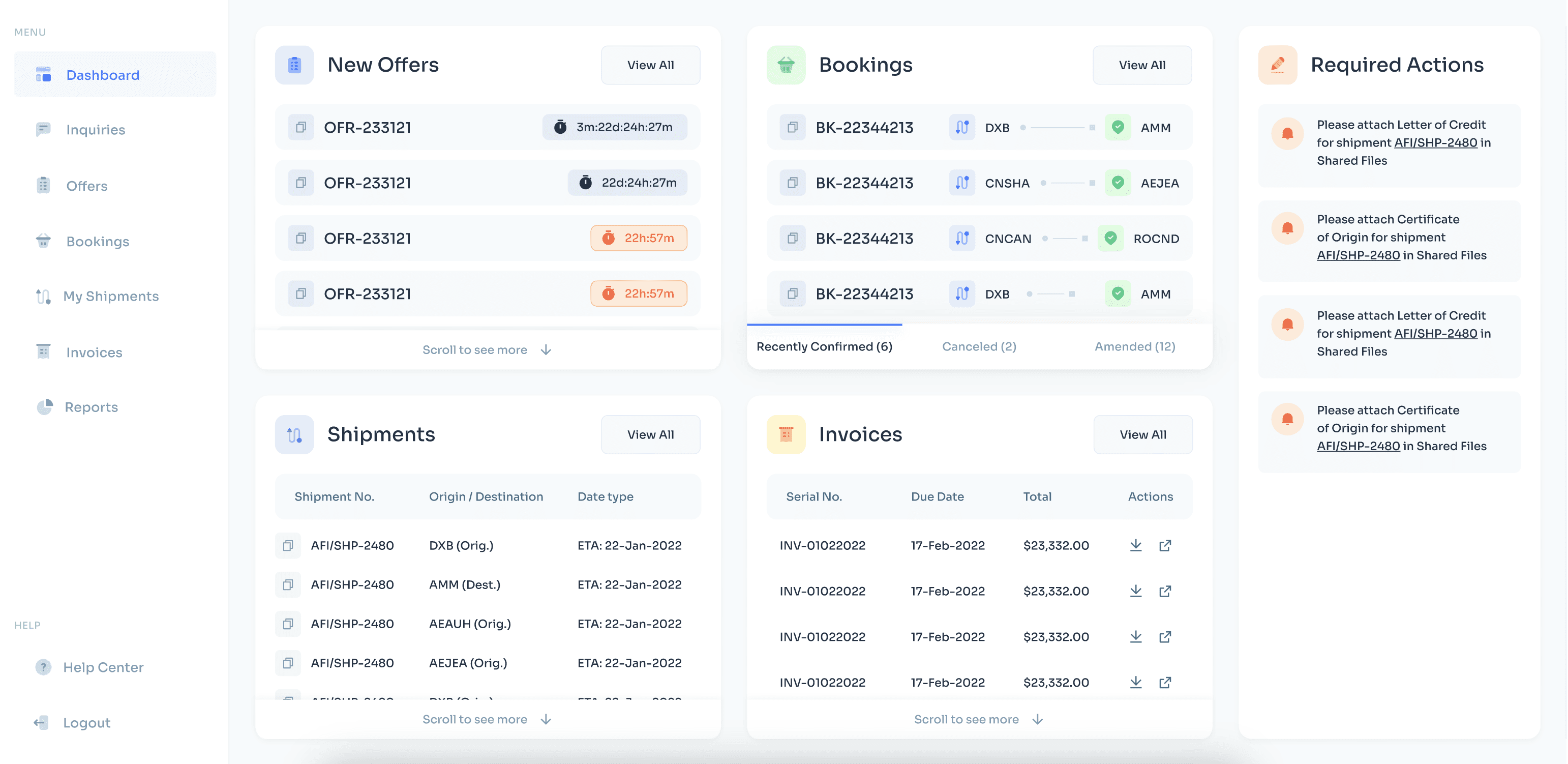July 2024
Automation is transforming the freight industry, streamlining processes, reducing errors, and enhancing overall operational efficiency. This blog explores how automation is revolutionizing freight forwarding and the benefits it brings to companies.
Streamlining Operations

Automation simplifies complex operations by automating repetitive tasks. From booking shipments to generating invoices, automated systems handle these processes swiftly, reducing manual intervention and the likelihood of errors.
Take, for example, automated booking systems that enable companies to process orders in a snap, eliminating the need for manual data entry and slashing processing time from hours to minutes. This not only saves time but also cuts down the risk of human error, ensuring accurate record-keeping.
Real-Time Tracking and Visibility

Automated systems provide real-time tracking and visibility into shipments. Using technologies like Wakeo, which offers AI-powered live tracking and ETA prediction, companies can monitor their cargo’s exact location and status, ensuring transparency and timely updates for clients.
With real-time tracking, a company can offer customers precise delivery times and immediate notifications of any delays. This level of transparency enhances customer satisfaction and builds trust, a key factor in fostering strong client relationships and enabling clients to plan their operations more effectively.
Enhanced Customer Service

Automation enhances customer service by providing clients with up-to-date information on their shipments and easier interactions with the freight company. A customer portal that allows customers to send inquiries, track shipments, invoices, and reports, as well as receive automated notifications and tracking updates, keeps customers informed, improving satisfaction and trust in the service.
An automated notification system can alert customers via SMS or email about their shipment status, estimated delivery times, and any unforeseen delays, providing a superior customer experience. Missing documents can be uploaded through the portal, ensuring efficient shipment processing. Customers can easily track invoices and reports. This level of communication ensures that clients are always in the loop, reducing anxiety, increasing transparency, and building confidence in the service provided.
Cost Efficiency

Automation significantly reduces operational costs by reducing manual labour and streamlining operations. This efficiency allows companies to allocate resources more effectively and improve their bottom line.
Implementing automated invoicing can reduce the need for redundant job titles, lower overhead costs, and help allocate resources to more modern, needed roles in freight forwarding, such as data analysts, IT specialists, and customer experience managers. This cost-saving measure allows companies to invest more in other business areas, driving growth and innovation.
Reporting and Analytics

Automated systems efficiently collect and analyze large volumes of data to generate comprehensive reports. This capability enables freight companies to make informed decisions, optimize routes, and predict potential issues before they arise.
Through business reports, companies can gather insights into shipment volumes, trends, and business expansion opportunities. Financial reports give a detailed view of receivables, payables, and profitability. When generating performance reports, you can track your team’s productivity and efficiency. This data-driven approach allows companies to continuously improve their operations, staying ahead of the competition.
Compliance and Documentation

Automation ensures that all necessary documentation is generated accurately and complies with international regulations. This reduces the risk of non-compliance and associated penalties.
Automated customs documentation helps ensure all shipments meet regulatory requirements, reducing border delays and avoiding costly fines. This compliance is crucial in maintaining smooth operations and avoiding legal complications.
Case Study: Logistaas
Logistaas exemplifies the power of automation in freight forwarding. Its comprehensive TMS integrates automated features such as real-time tracking, automated invoicing, reporting, and documentation. It also has a comprehensive online customer portal that helps automate and simplify tasks for both customers and companies, providing a seamless experience for both. Logistaas helps businesses improve efficiency, reduce costs, and enhance customer satisfaction by leveraging automation.
A freight forwarder using Logistaas can automate the entire shipment lifecycle, from initial booking to final delivery, ensuring a streamlined and efficient operation. This comprehensive automation saves time, reduces errors, and improves customer service.
Automation is no longer a luxury but a necessity in modern freight forwarding. It streamlines operations, enhances visibility, improves customer service, and ensures compliance. As the industry continues to evolve, embracing automation will be crucial for freight companies aiming to stay competitive and deliver exceptional service. Logistaas stands at the forefront of this transformation, offering advanced automated solutions to meet the dynamic needs of the freight forwarding industry.
Explore Logistaas, and Book A Demo Now!

